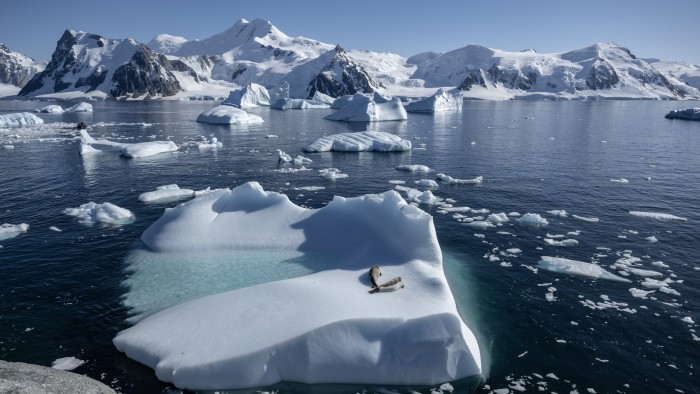Unlock the Editor’s Digest for free
Roula Khalaf, Editor of the FT, selects her favourite stories in this weekly newsletter.
Donald Trump’s election as US president is already fraying international initiatives on climate change and taxation, as diplomats from the world’s richest nations struggle to maintain a shaky consensus on the eve of a G20 summit in Brazil.
Argentina and its President Javier Milei, a close ally of Trump, threatened to block a joint communique set to be endorsed by G20 leaders at the Rio de Janeiro meeting that begins on Monday, because of objections related to taxation of the super-rich and gender equality, people briefed on the continuing negotiations told the Financial Times.
Diplomats also worked through Saturday night in an attempt to find consensus on climate finance and geopolitical issues such as Russia’s war against Ukraine, the people said.
Progress had been made on the main points in negotiations that went on until early on Sunday morning, according to a person briefed on the talks.
The struggle to agree on how much developing nations should contribute to financial efforts to combat global warming mirrors negotiations at the COP29 climate summit taking place simultaneously in Baku.
The threat of a Milei veto has heightened the concerns of many western diplomats who fear Trump’s election will embolden his conservative allies and spark an exodus of countries from ambitious agreements on issues such as global warming. Trump has vowed to pull the US out of the Paris climate accords.
“[The Argentine government] wants to make the G20 in Brazil a test between old and new forces,” said one Brazilian official. “After a year of negotiations on taxation and consensus they are creating problems on things they accepted before, word by word.”
Buenos Aires’ opposition to the draft communique being prepared by the leaders’ representatives in the Brazilian city followed Milei’s meeting with Trump in Florida on Thursday, in the US president-elect’s first meeting with a foreign leader since his poll victory. Argentina was the only country to vote against a UN resolution last week, denouncing online violence against women and girls.
The Rio summit, where Brazilian president Luiz Inácio Lula da Silva will convene discussions focused on combating poverty, governance reform in international institutions and climate, is the first gathering of major world leaders since the US vote, after many skipped the COP summit.
Many officials present at the event, where Lula is to launch a global alliance against hunger, fear it will be overshadowed by the knowledge that Trump is opposed to many of its planned conclusions.
“We’re all supposed to sit there and talk about the future of global co-operation and pretend that there’s not this guy on his way [to the White House] who couldn’t care less,” said a European official involved in the communique negotiations. “It’s hard to see how anything decided [here] has much of a future.”
Ian Lesser, a distinguished fellow at the German Marshall Fund, said: “The kinds of issues that Brazil has put on the agenda are precisely the sort of issues that could be most in jeopardy . . . under the Trump administration. These kinds of multilateral organisations exemplify exactly the sort of structures that president-elect Trump and his team dislike.”
Argentina objected to the inclusion of language around taxation that his country agreed to last month at a meeting of G20 finance ministers and central bank governors, according to people briefed on the talks.
The October declaration pledged to “work together towards a fairer, more inclusive, stable and efficient international tax system fit for the 21st century, restating our commitment to tax transparency and fostering global dialogue on effective taxation, including of ultra-high-net-worth individuals”.
Milei was also opposed to a reference to the Paris Agreement and a commitment to “stay united in the pursuit of the accord’s goals”, officials said. Another point of Argentine resistance was reference to the US’s 2030 agenda on sustainable development.
The Argentine leader pulled his team of negotiators from the COP29 summit this week, the day after his phone call with Trump.
On Saturday, the UN’s climate chief Simon Stiell wrote a letter calling on G20 leaders to “send crystal clear global signals”, as negotiators in Baku struggle to make progress on a deal to raise more global funds for climate finance.
The dispute over the G20 communique adds to existing tensions within the group over Russia’s invasion of Ukraine and the war in the Middle East.
Russian President Vladimir Putin will not attend the Rio summit, but his Chinese counterpart Xi Jinping is expected to continue Beijing’s position of blocking western efforts to condemn Moscow for the war against its neighbour.
It will also be the final summit for US President Joe Biden, whose administration sought to leverage multilateral organisations such as Nato, the G7 and G20 to find responses to issues such as the Ukraine war.
“So, all this work that we have done with the US [under Biden] — what do we do with it now?” said a senior European diplomat. “We have lost the initiative.
“Biden always tried to consult with us as much as possible,” the diplomat added. “Trump will just go his own way.”


